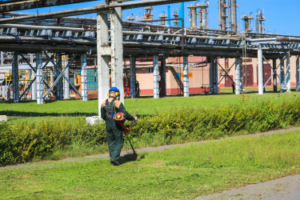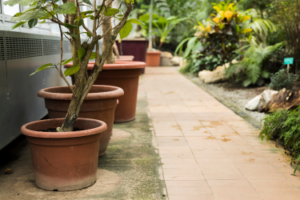As a homeowner, particularly in the case of a property that you’re renting out, you need to ensure that your responsibilities as a landlord are fulfilled to protect your property and tenants.
Basic legal obligations range from ensuring that property safety protocols are followed, to the measures installed for both electrical and gas installations. The landlord’s safety responsibilities will ensure that the property and tenants are kept from harm. For this you need to have a gas and electrical safety check.
According to the Landlords and Tenants Act 1985, it requires that the properties gas and electrical installations are maintained from the moment occupancy begins. In this article we will explain the essential gas and electrical safety responsibilities of the landlord.
What you need to know about gas safety
When you lease your property, you’re required (by law) to ensure that all of the gas appliances, fittings and chimneys are approved for use by acquiring a Gas Safety Certificate (CP12).
How to acquire a Gas Safety Certificate?
A Gas Safety Certificate will be issued by a qualified and registered gas engineer following a gas safety check. The engineer will document information about the safety check on a Landlord Gas Safety Record form (this is known as a CP12 certificate) and provide copies for you and your tenants. Even if your tenants choose not to use gas, any form of gas supply linked to the property needs to be checked.
The engineer will do a thorough check of your pipelines and appliances to ensure that they’re in good condition and test it for any leaks.
But, before the gas engineer can proceed with the check, they need to provide their Gas Safe ID card. The ID card will indicate which services the engineer is qualified to execute, and it will confirm their registration credentials.
Gas Safety Record form (CP12) checklist
- These are a few of the items that have to be checked on the CP12 form:
- Description of the appliance the engineer has checked
- Location of the appliance on your property
- The gas engineer’s credentials i.e. registration number, name and signature
- The date your appliances were checked
- Your property’s address
- Your name and address
- All safety defects and required action needs to be listed by the engineer
- Confirmation of the safety check results
Finally, one of the most important things to remember in relation to the gas safety check is that it has to be conducted every year. It is recommended that you prepare for inspection 10 to 12 months after your safety check the year before.
Electrical safety
The commercial landlord responsibility for electrical safety is similar to the obligations outlined for gas safety except it applies to electrical appliances. The law states that landlords are required to provide a certificate to the tenant to indicate that all of the electrical goods have been checked and meet safety standards. The Electrical Safety Council recommends that testing be conducted every five years or each time a new tenant occupies the property.
As of 1 June 2020, landlords are required to carry out electrical safety checks and provide an Electrical Installation Condition Report (EICR). This means that all new tenancies will need an EICR from 1 July 2020 and existing tenancies will need to be carried out from 1 April 2021.
What are my responsibilities as a landlord?
The landlord is responsible for ensuring that the electrical system is safe for items such as sockets and light fittings to avoid the risk of injury, harm to humans or damaging the property. This also includes the inspection of electrical appliances on the property and checking that they are safe to use i.e. cookers and kettles.
The appliances you provide should be checked by a qualified electrician. Once every appliance provided by the landlord has been inspected, it should be marked with the CE symbol.
Even though it is recommended that these checks be conducted every five years, as best practice, you should carry this out once a year. By checking the electrical goods on your property, you could save on costs that may incur as a result of faulty electrical items.
Here are some best practice tips:
- Wiring should be checked for burn marks or faults
- Check the fuses and make sure that the correct rating is being used
- Make sure that your appliances are inspected by a qualified electrician and that unsafe items are removed from the property
- Keep the instruction booklets for all electrical appliances on the property so that the tenants know the correct way to use it
- Steer clear of second-hand or used electrical goods
Pro tip: Keep all inspection records with you and a copy on the property. Even though it is not required to conduct annual electrical safety checks as it is with gas safety, if at any given moment you decide to carry out an electrical inspection, all of the necessary details or history of checks are documented for your convenience.
Get in touch with us if you’re looking for advice on safety inspections and recommendations. Give us a call on 01249 443 278 or email us at hello@dependablelimited.com.




